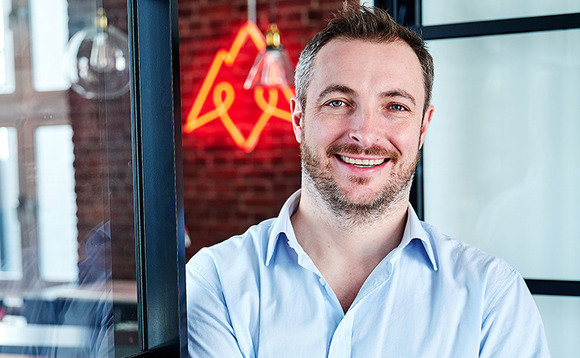
Tenzing sets sights on Nordic countries

Following the appointment of Magnus GottУЅs to lead Tenzing Private Equity's Nordic expansion, managing partner Guy Gillon speaks to Unquote about the firm's sourcing and deployment plans, as well as its ongoing portfolio development.
Plans to broaden Tenzing Private Equity's horizons from UK-focused deals had been in the work for some time and were already on the cards at the time of its last fundraise, Tenzing co-founder and managing partner Guy Gillon says: "When we raised Fund II, it was always our plan to explore Europe from a technology and tech-enabled services perspective, and we have a material amount of the fund available for European platforms. But at the same time, we have a very high bar for dealflow and it would be our first time investing in a single platform in Europe. Our plan is to do one European platform with this fund, but we can do none, or more than one if the quality is high enough."
Tenzing already has some Nordic-based LPs on board and plans to continue to diversify its LP base in future, says Gillon. "We already have a reasonable Nordic LP base; just under 15% of our LPs by capital are Nordic, and we have relationships with a number of LPs that have not joined us on the journey just yet. We want a balance of geographies and types of capital."
The GP held a final close for Tenzing Private Equity II in June 2020 on its GBP 400m hard-cap. The fund expects to make 10-12 platform investments, according to Unquote Data. The fund can invest GBP 10m-100m in equity in any one investment. It generally makes investments of GBP 20-50m, with follow-on capital of up to GBP 30m available. The fund has made three platform deals, the most recent of which was transport management software Mandata, which the GP acquired from LDC in October 2021.
The technology-driven economy and the widespread use of English in the Nordic countries are key drivers for Tenzing's choice to step up its investments there, Gillon says: "The Nordic region is an innovative technology-enabled environment. There is also a significant amount of corporate activity done in English, so from a risk perspective, there is less chance of a breakdown in communications. And they are culturally quite similar to the UK."
Tenzing has not opened an office on the ground in the Nordic region, but intends to transact from the UK, with Gottås leading its deal sourcing activities and feeding information back to Tenzing's London headquarters.
The GP made its first deal in the Nordic region in December 2019: its UK portfolio company Ticketer, a bus ticketing platform, acquired Norway-headquartered market peer Fara with the aim of expanding both companies' product portfolios.
Stepping up
In addition to the advantages that Tenzing sees in the market, the GP can also bring its experience and network to bear in the region, Gillon says: "The Nordic region is made up of four countries and companies can become dominant quite quickly in their domestic markets, but they then have to look abroad. We have also seen that these companies are quite internationally-minded and are open to foreign PE firms."
Finding the right partner to facilitate this Nordic expansion was a crucial part in the decision. "Hiring individuals is hugely important: it's about judgment, risk and relationships," says Gillon. "We needed the conviction that we could have the right kind of relationship with the right people. So the decision was also supply-led. We wanted someone with a good cultural fit, the right kind of 'Tenzing person', so to an extent we also reacted to supply on a senior level."
The initial focus of Tenzing's activities in the Nordic countries will initially be for newly hired Gottås to source add-on deals. "The Nordic region is very tech-driven as a market, so you do get a lot more B2B and enterprise tech evolution than you might do in other markets," says Gillon. "The primary focus for Magnus in the long term is to invest in platforms. But in the near-term, our existing portfolio companies are hungry for inorganic growth, and so we have a brilliant salesman in Magnus in sourcing."
The GP plans to build relationships with the advisory community as part of this process. "Magnus has very relevant dealflow for advisers," Gillon says. "Our business model is adviser-driven, we embrace the advisory community and don't seek to do deals off-market. So Magnus has live requirements that are very specific, with very good collateral with our 11 portfolio companies. We initially expect to be around 50% covered in terms of advisers and will look to build to 90% coverage."
Tenzing generally makes three or four deals per year, although this is not a hard and fast target and is opportunity-dependent, Gillon says. Tenzing will be similarly selective in the add-ons it will pursue in the Nordic region, Gillon says: "We don't have a target for the add-ons we will make in the Nordic countries, but internally we have percentage growth ambitions for the portfolio companies. They have to be the right opportunities: it's about the value chain, but it's also market similarity if a company goes in for the first time."
Portfolio development
In addition to completing its second fundraise during the early part of the coronavirus pandemic, Tenzing has paid close attention to supporting and developing its portfolio companies. "Due to uncertainty, some growth initiatives were slowed down, even though the performance of the portfolio was good," says Gillon.
However, exit prospects look promising for certain portfolio companies if market conditions are right, Gillon notes. "We massively invested in our companies in the first six months of lockdown. If we are happy with the levels of potential returns, we would look to exit some investments at the end of 2022 and the start of 2023."
Tenzing has eight remaining portfolio companies in its 2017-vintage, EUR 200m debut fund. The fund made its first deal in October 2017, acquiring web filtering software Smoothwall. The GP sold the business in a GBP 75.5m trade sale to Australian cybersecurity business Family Zone in August 2021, netting returns of 5.6x. The GP made its first exit in August 2019, generating a 5.4x money multiple and 72% IRR on the sale of payroll software FMP Global to Hg's Iris Software. The firm typically holds its portfolio companies for four to five years.
Given that Tenzing focuses on B2B, high-growth, mission-critical technology businesses, rising valuations are inevitably part of its day-to-day deal decisions. "Ultimately, we always believe that we are investing in premium high-growth businesses, and we believe they will sell for premium prices," says Gillon.
However, going off-market is not something that the GP would consider, Gillon says: "We don't believe that you necessarily get a better deal off-market, unless you have asymmetric information, and we don't want that – we want founders to know that they are getting a fair price. It's about risk and reward: how much conviction do we have over the growth of the business with us as their partner? We have heavily invested in our growth team and we are very focused on adding value. A high-price market can turn on you, so you need growth levers and you need to build value between us and the management team."
Tenzing's Growth Team forms part of this strategy. Headed by Glenn Elliott, the team assists Tenzing's portfolio companies with their growth, ranging from sourcing acquisitions to providing advice via its entrepreneurs panel, operational networks, and its specialists in areas including HR, sales and marketing.
Click here to read a previous GP Profile of Tenzing on Unquote
Latest News
Stonehage Fleming raises USD 130m for largest fund to date, eyes 2024 programme
Sponsor acquired the public software group in July 2017 via the same-year vintage Partners Group Global Value 2017
Stonehage Fleming raises USD 130m for largest fund to date, eyes 2024 programme
Czech Republic-headquartered family office is targeting DACH and CEE region deals
Stonehage Fleming raises USD 130m for largest fund to date, eyes 2024 programme
Ex-Rocket Internet leader Bettina Curtze joins Swiss VC firm as partner and CFO
Stonehage Fleming raises USD 130m for largest fund to date, eyes 2024 programme
Estonia-registered VC could bolster LP base with fresh capital from funds-of-funds or pension funds









